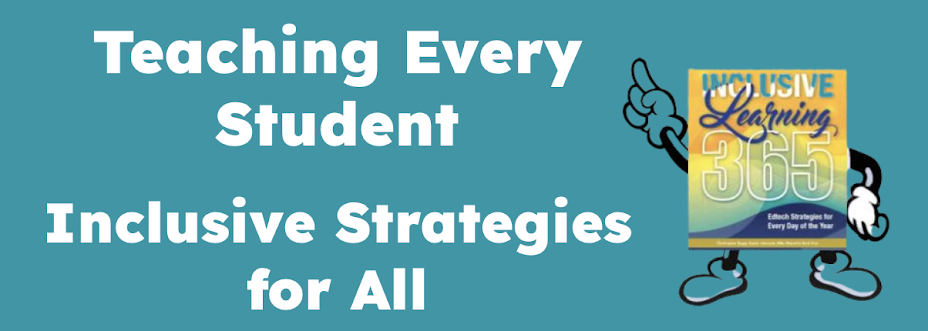I will do whatever it takes to teach others about UDL, or Universal Design for Learning because I believe UDL transforms teaching practices and makes learning possible for struggling learners. I can not keep this to myself.
Recently, I had the opportunity to share about UDL at both NECC in DC, at the interactive UDL Playground and at EdubloggerCon East at BLC09 in Boston. I'm continually mystified by the reality that so few educators have heard about UDL and even fewer are applying the principles of offering multiple methods of engagement, presentation and expression to tap into students' affective, recognition and strategic networks to reach all learners. The connection between new media technology tools and UDL makes it easier than ever to provide multiple methods of engagement, presentation and expression. Incorporating a UDL framework makes reaching all learners possible.
What is UDL?
Universal Design for Learning (UDL) is a framework for designing curricula that enable all individuals to gain knowledge, skills, and enthusiasm for learning. UDL provides rich supports for learning and reduces barriers to the curriculum while maintaining high achievement standards for all. (from the cast.org site)It seems as though everyone has heard about Gardner's Multiple Intelligences Theory or about Differentiated Instruction and even about Understanding by Design. So, why do Universal Design for Learning principles remain the great unknown? Don't we want to ensure we are reaching all our students? What can be done to help educators understand and explore the principles further and then apply the concepts that will support and reach all the learners in their classrooms? How do we get the word out?
Any ideas?
To learn more about UDL, check out these resources:
CAST/Teaching Every Student
UDL Guidelines
UDL Online Classroom Tools
National Universal Design for Learning Task Force

UDL is about "mastering learning," we hire teachers who have mastered knowledge. So the tougher question is how do we get teachers to transform their mastery first?
ReplyDeleteCan you be a master of knowledge and implement UDL?
I've been hearing about UDL and I think I have been on the verge of understanding a few times. My problem is that after I leave the sessions I go to on UDL, I don't immediately begin using UDL. I'm process oriented, is there a process or steps I can follow? How about a couple of example lessons with commentary about the different elements that make it UDL?
ReplyDeletePaul,
ReplyDeleteWhen that knowledge includes an understanding of UDL, sure! In all seriousness, when we put our student's understanding of the knowledge first, we explore alternative ways to help them access content and demonstrate what they know. The numerous options beyond traditional tools (lecture, paper/pencil, textbooks) provide more opportunities than ever before for teaching as well as learning. Do you think it's possible?
Chris,
Great that you have an understanding of the UDL framework. Have you explored the UDL tools and the sample lessons that are uploaded at the cast.org website? Try here - http://lessonbuilder.cast.org/explore.php and here http://udlselfcheck.cast.org/.
In addition, you may be interested to read my latest blog post which highlights the work for two Long Island educators.
Karen, I think Chris and Paul have nailed it. People are interested. We need to build capacity. We need more people to join the ning and share. http://udl4all.ning.com/
ReplyDeletePlease join, you will find a great support network to help you along this journey. Do it for your kids.
Cheryl Oakes